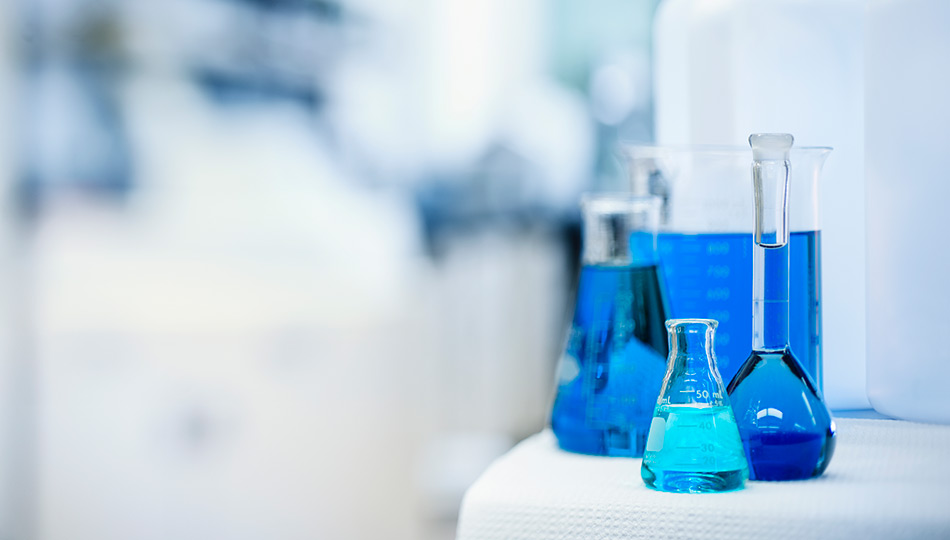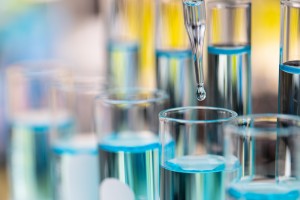Industrial wastewater is the waste water, sewage and waste liquid produced in the industrial production process, usually containing industrial production materials, by-products and pollutants generated in the production process. Industrial wastewater treatment refers to the process of properly treating the water used in the industrial production process for production or discharge from the factory, which can effectively treat the wastewater generated in the industrial field and reduce environmental pollution. As one of the important links in environmental governance, industrial wastewater treatment has the characteristics of harmless, reduced and socialized treatment, and is widely used in pharmaceutical, printing and dyeing, chemical, steel and other industrial fields. Industrial wastewater treatment takes different treatment measures according to the nature of pollutants in wastewater. According to its treatment process, it can be

divided into physical treatment method, chemical treatment method, physicochemical treatment method and biological treatment method. Among them, activated sludge in biological treatment method The method has high chemical conversion efficiency and has a good effect on the treatment of pollutants in organic industrial wastewater. It is currently the most widely used industrial wastewater treatment process.
The introduction of policies to guide the development of energy-saving and environmental protection in the industrial wastewater treatment industry As one of the important links in environmental governance, industrial wastewater treatment has played an important role in industrial production. In October 2010, the State Council of China proposed in the "Decision on Accelerating the Cultivation and Development of Strategic Emerging Industries" that energy conservation and environmental protection should be regarded as one of the seven strategic emerging industries, focusing on promoting high-efficiency energy-saving technical equipment and products, and realizing key technologies in key areas. A breakthrough will drive the improvement of the overall level of energy efficiency. In April 2015, the State Council of China issued the Action Plan for the Prevention and Control of Water Pollution ("Water Ten"), which is the first sign of China's supervision of industrial water treatment. Special treatment plans for ten key industries such as non-ferrous metals, printing and dyeing, coking, and API manufacturing are implemented, and clean transformation is implemented to achieve the goal of rectifying water pollution. In addition, the "Ten Water Regulations" also put forward 238 powerful measures to control pollution in industrial agglomeration areas. It can be seen that while focusing on reducing the total amount of pollutant discharge, China pays more attention to the improvement of water environment quality and the prevention and control of environmental risks. In October 2017, in the report of the 19th National Congress of the Communist Party of China, it was required to improve pollution discharge standards, strengthen the responsibility of polluters, and improve the environmental credit evaluation, mandatory information disclosure, severe punishment and other systems. will play a huge guiding role. On the other hand, in the environmental protection tax law, the Chinese government has also introduced relevant policies. In December 2017, the State Council of China promulgated the Regulations on the Implementation of the Environmental Protection Tax Law of the People's Republic of China, requiring taxpayers to discharge taxable water pollutants whose concentration value is lower than 30.0% of the pollutant discharge standard stipulated by the state and local governments, with a reduction of 75.0%. % levy environmental protection tax; if the concentration of pollutants is lower than 50.0% of the pollutant discharge standard stipulated by the state and local governments, the environmental protection tax will be levied at a reduced rate of 50.0%. After the implementation of this policy, the collection of sewage charges was abolished, which is of great significance for protecting and improving the environment, reducing pollutant emissions, and promoting the construction of ecological civilization.
Source: Illustrated by the Sullivan Institute Water treatment technology and process route will show a diversified development trend. Under the background of favorable national policies, China's industrial wastewater treatment technology innovation capability has been greatly improved, which has promoted the improvement of China's industrial wastewater treatment level. Due to the complexity of industrial water pollutants, it

is difficult for a single technology to achieve the desired effect. Therefore, industrial wastewater treatment enterprises need to conduct integrated research in cross, complementary, and synergistic ways through the application of comprehensive water treatment technologies, such as chemical-physical combination. Treatment methods, chemical-biological combined treatment methods, etc., so as to achieve the goals of high efficiency, low consumption and environmental protection. On the other hand, in the circulating cooling water system with a large proportion of water consumption, the scale-based compound formula is mostly used, but because the phosphorus-based corrosion and scale inhibitor in this formula can act as a nutrient for bacteria and algae in the water, causing water pollution Eutrophication and water pollution. Therefore, with the improvement of China's industrial wastewater treatment technology, the development of low-phosphorus or non-phosphorus, non-nitrogen, biodegradable, multi-functional and environmentally friendly water treatment chemicals will become the mainstream research direction of industrial wastewater treatment.
The Chinese government has issued a series of environmental protection policies, requiring enterprises or entities related to the industrial field to strictly control industrial wastewater, which has played a restrictive role in the discharge of wastewater by enterprises and stimulated the growth of demand in the industrial wastewater treatment industry. With the gradual advancement of related industrial wastewater treatment projects in various industrial parks, high-tech industrial development zones, and ecological industrial parks in China, the scale of China's industrial wastewater treatment market will continue to maintain an upward trend.
We continuously execute our spirit of ''Innovation bringing development, Highly-quality ensuring subsistence, Management advertising and marketing gain, Credit history attracting buyers for Wholesale Price China Cleanwat Chemical Anionic PAM Polyacrylamide Cationic Polymer Flocculant, Chitosan,Chitosan Powder,drinking water treatment,water decoloring agent, dadmac, diallyl dimethyl ammonium chloride, dicyandiamide, dcda, defoamer, antifoam, pac,poly aluminium chloride,polyaluminium,polyelectrolyte,pam,polyacrylamide, polydadmac, pdadmac, polyamine, Top quality and competitive rates make our items delight in a superior standing everywhere in the word. Wholesale Price China Cationic Polyacrylamide, poliacrilamida, anionic polyacrylamides, polyacrylamid, polyacrylamide gel, Cationic Flocculant, Our company upholds the spirit of "innovation, harmony, team work and sharing, trails, pragmatic progress". Give us a chance and we will prove our capability. With your kind help, we believe that we can create a bright future with you together.If you are interested in our product, please feel free to contact us for free samples.
Excerpted from frostchina.
Post time: Aug-23-2022

